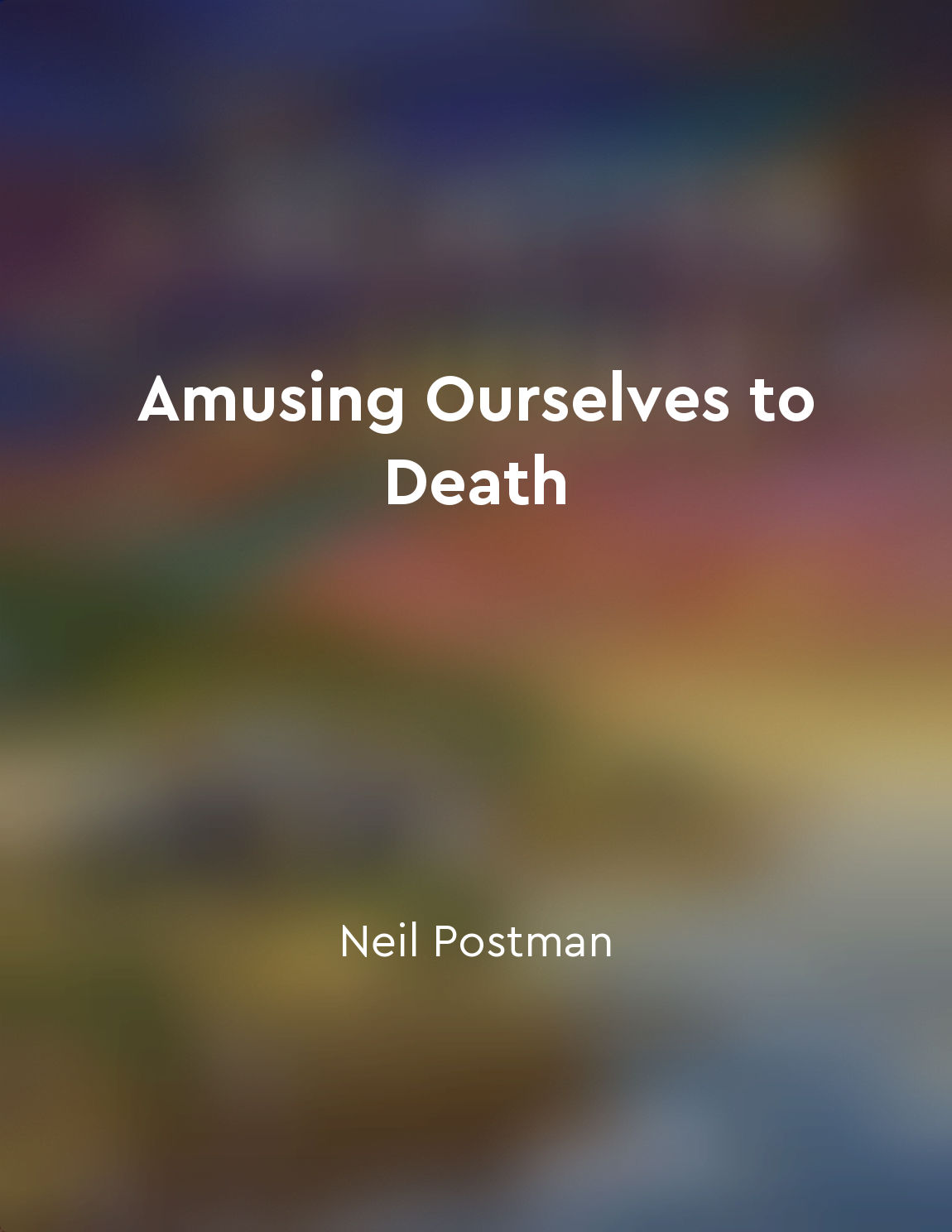TV content shapes our values and beliefs from "summary" of Amusing Ourselves to Death by Neil Postman
Neil Postman argues that television content has a profound impact on shaping our values and beliefs. He emphasizes that the medium of television, with its focus on entertainment and visual spectacle, has the power to influence our perceptions of reality and shape our worldview. Postman suggests that the nature of television content, which is designed to engage viewers through emotional appeal and sensationalism, can distort our understanding of complex issues and lead us to prioritize entertainment over critical thinking. Postman points out that the rise of television has resulted in a shift towards a visually-oriented culture, where images and soundbites take precedence over reasoned discourse and intellectual engagement. He argues that the fast-paced nature of television programming, with its constant barrage of images and information, can overwhelm our ability to process and analyze information critically. As a result, we may become more passive consumers of media, accepting what is presented to us without questioning or examining its veracity. Furthermore, Postman suggests that the commercial nature of television content can shape our values and beliefs by promoting consumerism and materialism. He contends that the pervasive influence of advertising on television can lead us to equate happiness and fulfillment with material possessions, creating a culture where consumption becomes the primary goal. In this way, television content can reinforce certain societal norms and values, shaping our attitudes towards wealth, success, and happiness.- Postman warns against the dangers of allowing television content to dictate our values and beliefs, suggesting that we must approach the medium with a critical eye and a discerning mind. By recognizing the influence of television on our perceptions of reality and understanding how it shapes our worldview, we can guard against its potential to distort our understanding of the world around us. As such, Postman urges us to engage with television content thoughtfully and critically, so that we may remain active participants in shaping our values and beliefs.


